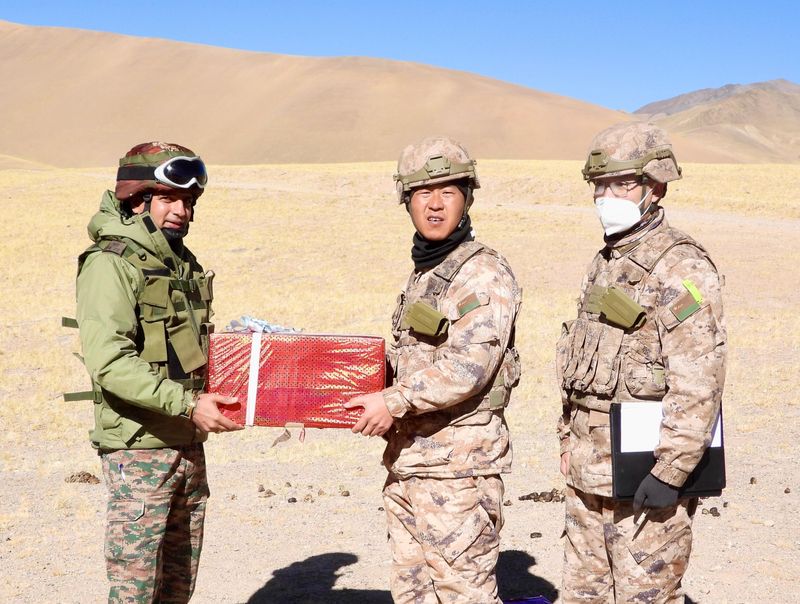On Diwali, Indian and Chinese frontline troops engaged in a goodwill gesture by exchanging sweets at five different locations along the Line of Actual Control (LAC) in Ladakh. This exchange occurred without a formal military ceremony, with small teams of 8-10 soldiers from both sides meeting at various sensitive points, including:
- Karokaram Pass: The northernmost point along the India-China boundary.
- Hot Springs: A site of significant tension during past military standoffs since April 2020.
- Kongka La: Another sensitive area.
Additionally, sweets were exchanged at designated border meeting points, Daulat Baig Oldie (DBO) and Spanggur Gap (Chushul), where interactions between the two sides had been more common before the heightened tensions in 2020.
Context of the Exchange
This exchange comes after the successful completion of a disengagement process at Depsang and Demchok, announced on October 21, which included the removal of temporary structures and equipment that had previously obstructed patrolling routes.
- The Indian Army confirmed that the verification of these removals has been completed, facilitating the reopening of patrol routes for Indian troops at points 10, 11, 12, and 13 on the Depsang plateau.
Coordinated Patrols
The newly established arrangements involve coordinated patrols, wherein both sides will inform each other before launching any patrols, a measure designed to prevent future confrontations.
Remaining Contentions
Despite these positive developments, there has been no mention of the resumption of patrolling in other contentious areas in Eastern Ladakh, such as Gogra, Pangong Tso, and Galwan, where similar disengagements have occurred.
This sweet exchange during Diwali reflects ongoing efforts to maintain peace and communication between the two nations amid a complex relationship characterized by both cooperation and contention.



